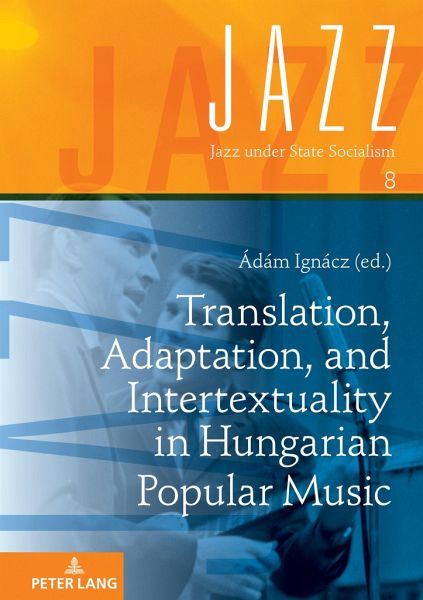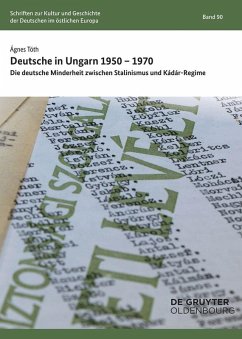
Translation, Adaptation, and Intertextuality in Hungarian Popular Music
Versandkostenfrei!
Versandfertig in 6-10 Tagen
56,95 €
inkl. MwSt.

PAYBACK Punkte
0 °P sammeln!
This volume undertakes a comprehensive examination of issues of translation, adaptation, and intertextuality in Hungarian popular music. Focusing on the period of state socialism, the authors provide various examples of how musicians - professionals and amateurs alike - borrowed songs from distant times and places, reinventing them in a new political, technological, and esthetic environment. The case studies deal with a wide range of genresand styles that played an important role in Hungary, such as operetta, protest song, folk, jazz, pop, and rock. Placing the Hungarian experience in a region...
This volume undertakes a comprehensive examination of issues of translation, adaptation, and intertextuality in Hungarian popular music. Focusing on the period of state socialism, the authors provide various examples of how musicians - professionals and amateurs alike - borrowed songs from distant times and places, reinventing them in a new political, technological, and esthetic environment. The case studies deal with a wide range of genres
and styles that played an important role in Hungary, such as operetta, protest song, folk, jazz, pop, and rock. Placing the Hungarian experience in a regional context, the collection also gives insight into the music scenes of the neighboring countries through a major comparative study on the Beatles adaptations in the Eastern Bloc.
and styles that played an important role in Hungary, such as operetta, protest song, folk, jazz, pop, and rock. Placing the Hungarian experience in a regional context, the collection also gives insight into the music scenes of the neighboring countries through a major comparative study on the Beatles adaptations in the Eastern Bloc.












